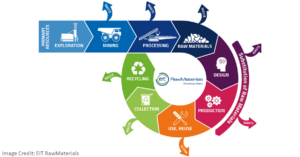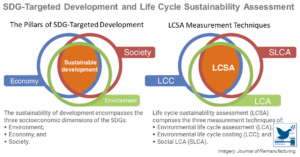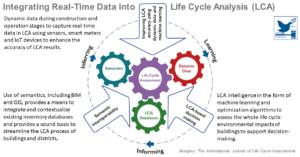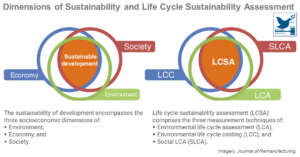
Circular Economy – Principles for Buildings Design
Circular economy principles for sustainable building design stress resource efficiency in construction to prevent and reduce construction and demolition waste and to re-use and recycle building materials and products. This document informs the key participants in the building value chain about sustainable building des ...
Posted on 25/04/24

Life Cycle Costing: Evaluate Sustainability Outcomes for Building and Construction Sector
Life-cycle cost (LCC) is the sum of all costs related to the life cycle of a building from investment to its deconstruction. For a sustainable building, it is anticipated that the environmental impacts associated with the design, construction, and operation of this building are lower than conventional construction. L ...
Posted on 24/04/24

Sustainable Development Goal 9: Industry, Innovation and Infrastructure
Sustainable Development Goal 9 is to “build resilient infrastructure, promote inclusive and sustainable industrialization and foster innovation”, according to the United Nations. For SDG 9, the UN has defined 8 targets that specify the goals and 12 indicators that represent the metrics by which the world aims to track ...
Posted on 03/08/23

The Application of Life Cycle Assessment in Buildings: Challenges, and Directions for Future Research
New generation life cycle assessment (LCA) methods and tools can positively influence the environmental impact of the built environment and help mitigate the effects of climate change. They continuously learn from real-time data while allowing for effective operation and management strategies of buildings and district ...
Posted on 28/10/22

What are the challenges in assessing circular economy for the built environment? A literature review on integrating LCA, LCC and S-LCA in life cycle sustainability assessment, LCSA
For circular economy (CE) to succeed, focus must be given to the service life phase and the reuse/recycle phase of building projects. This involves more stakeholders both in the early decision-making phases of projects as well as in the design phase and impacts the project value chain. Life cycle sustainability asses ...
Posted on 19/10/22
Postings2025-01-08T09:00:41+02:00

